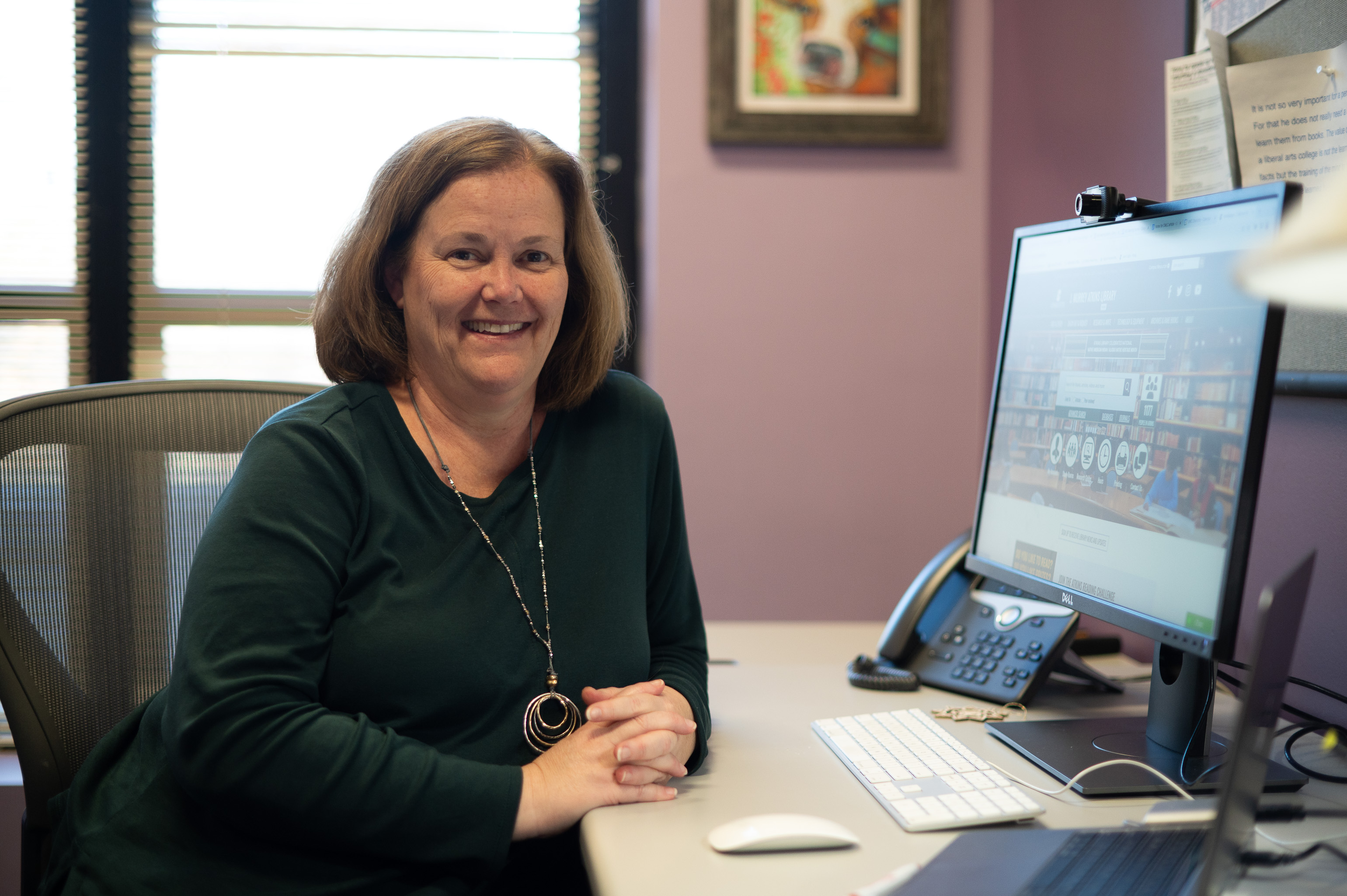
When you hear “librarian,” what do you think of?
Do you think of them as the security team for the books, looking after them day and night? Do you imagine them dusting books and bookshelves off one by one? Or sitting at the front desk checking out your books?
It’s easy to get this image in your head. After all, library science can be less visible to the campus community, but insights from Catherine Tingelstad may change your perception.
Tingelstad is head of instruction and curriculum engagement at J. Murrey Atkins Library and the head of the library’s Critical Media Literacy Collaborative. She’s been at UNC Charlotte for six years.
“One of our goals is to let our campus community know about the wide variety of services and resources that are available to them. It is important that students, faculty and staff know that we are here to help,” explained Tingelstad.
One great resource is the librarians themselves. There are 16 subject librarians at the library who provide instruction and research assistance to students and faculty in each of the campus’s academic programs.
The campus community can schedule times to meet with these librarians to get help and guidance with their research projects and assignments.
“This is a great resource for students,” said Tingelstad. “Especially if they’re doing a research project and need help finding reliable sources. The subject librarians are there to help through in-person meetings or online consultations.”
With the change in the media landscape, the ability to find and evaluate information is more important than ever. The overcrowded and often unreliable information landscape requires that students understand the importance of checking the reliability of news and research sources.
The development of generative AI has complicated the task of establishing the credibility of information. According to Tingelstad, generative AI applications have been known to create references that are not accurate and sometimes not even real. For Tingelstad, critical thinking is a key component of media literacy and being able to navigate the world.
“People of all ages can benefit from education about media literacy,” said Tingelstad. “All of us need to understand the impact of media ownership, bias, and representation along with the growing influence of algorithms and artificial intelligence.”
As a part of her work at UNC Charlotte, she has been active in the Critical Media Literacy Collaborative (CMLC) for the last five years, serving as the head of this group composed of several librarians, faculty members and students with the Niner Times.
“Critical media literacy is the ability to use critical thinking and rhetorical reasoning to find, evaluate, synthesize and create information online,” explained Tingelstad. “This effort led by Atkins Library was established to guide students and other campus community members toward creating and interacting with digital media critically as engaged, well-informed individuals.”
The group meets monthly to discuss projects, initiatives and teaching strategies to equip students with the skills and strategies to identify misleading or manipulated information. This has been deeply integrated into her work at UNC Charlotte.
“Our group, the Critical Media Literacy Collaborative, was formed to promote, educate and conduct outreach about media literacy across the UNC Charlotte campus,” said Tingelstad. “We have incorporated media literacy into our library instruction, taught workshops to groups on campus, and planned and hosted events for students, faculty, staff and the larger community.”
The CMLC and Niner Times are hosting a half-day conference in March that will promote the media literacy initiatives of students and faculty. The Media Literacy Matters: Current Landscape, Student Actions, and Future Directions Conference will feature Ryan Pitkin of the Queen City Nerve; a student showcase of posters, videos, and talks; a panel composed of Niner Times managerial board members; and lightning talks provided by faculty members involved in media literacy initiatives. All on campus are encouraged to attend.
The media literacy group has hosted a variety of panels, presentations, and video screenings over the last few years on topics including fake news, disinformation and misinformation, medical mistrust, fact checking and local news. Programs have included “Election 2020: How to Verify What You Read, See, and Hear Online,” a Zoom presentation with Canadian journalist Craig Silverman held in the lead-up to the 2020 election; “COVID-19 Vaccinations: Science, Politics, Mistrust, and Misinformation,” a panel discussion moderated by a local news anchor; and “Think Locally: Why Local News Matters,” a panel of Charlotte journalists discussing local news and fact-checking.
The CMLC has created a series of modules on media literacy concepts such as information disorder, evaluating sources and social media. These modules are available in Canvas Commons for any faculty member to incorporate into their courses.
Tingelstad hopes to build a network of media literacy partners through this initiative, resulting in increased media literacy across campus.
Librarians don’t merely look after books; they help people think critically, read carefully and act accordingly through the information gathered. Tingelstad and the Atkins Library librarians do just that.